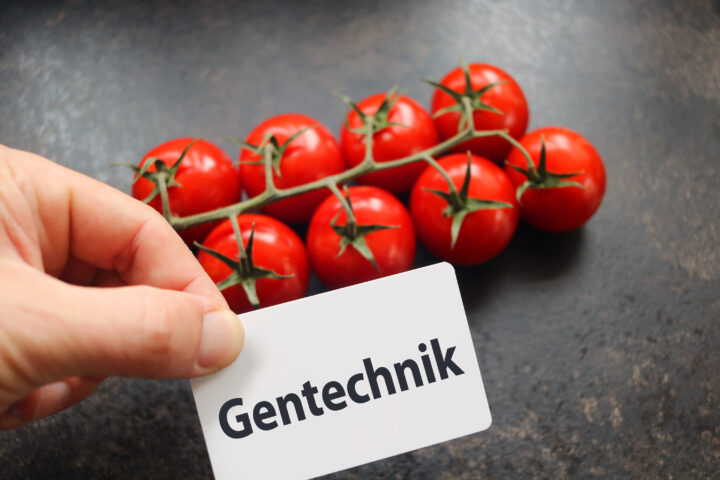
EU paves the way for gene editing
The European Union aims to regulate plants bred using genome editing techniques in the same way as conventional breeding methods. The European Commission plans to present a corresponding proposal for regulating new breeding technologies in early July. This move represents a significant step towards a more productive and sustainable agriculture in the EU. Switzerland should also re-evaluate genetically edited plants to avoid falling behind.
Wednesday, June 21, 2023
Until now, plants bred using new breeding technologies (genome editing) were subject to the same regulations as genetically modified organisms (GMOs) in the EU. They have been largely prohibited since a fundamental decision by the European Court of Justice in 2018, with a few exceptions. However, according to the "Frankfurter Allgemeine Zeitung," this is expected to change. A draft law reveals that the European Commission intends to apply the same authorization procedures for genome-edited plants as for conventional breeding methods. The gene-editing tool CRISPR/Cas accelerates the breeding of new plant varieties, although similar results can be achieved through classical breeding. However, the latter takes significantly longer. Therefore, the EU aims to no longer distinguish between conventional breeding methods and genome editing.
"Revving up the turbo"
The gene-editing tool CRISPR/Cas enables the acceleration of breeding more robust and climate-adapted plant varieties. These plants can better withstand stress factors such as heat and drought. It can also improve the storability of crops. Matthias Berninger from Bayer emphasized the urgent need for accelerated breeding of new varieties, stating, "We need to rev up the turbo if we want to keep up with the rapid pace of climate change." He further questioned, "Who will take responsibility for the risks to food security if we leave the potential of this new technology untapped?"
Switzerland risks falling behind
Switzerland should also rev up the turbo. The Federal Council is tasked with presenting a draft law by mid-2024 to regulate genetically edited plants. In Switzerland, plants bred using new breeding technologies are still subject to the GMO moratorium that has been in place since 2005. The Federal Council now has the opportunity to regulate plants that do not differ from conventional breeding methods and do not contain foreign genetic material based on risk assessment, freeing them from the moratorium. If Switzerland maintains the status quo, it risks being left behind by the EU and the rest of the world. This would have devastating consequences for Swiss agriculture as well as the country's research position.
Sources
Frankfurter Allgemeine Zeitung, June 17, 2023
Kindly note:
We, a non-native editorial team value clear and faultless communication. At times we have to prioritize speed over perfection, utilizing tools, that are still learning.
We are deepL sorry for any observed stylistic or spelling errors.
Related articles

Residue is not the same as residue
Painkillers like Voltaren are a blessing for us – yet in our rivers they can harm fish. If these were crop protection products, calls for bans would be immediate. It becomes clear that we are applying double standards.

ARTE documentary: Genetic engineering in organic farming?
The ARTE documentary “Genetic engineering in organic farming?” examines key controversial questions of modern agriculture: Is the general exclusion of new breeding technologies still up to date? Can the resistance of organic farming be justified scientifically?

The Great Suffering of Farmers
Fire blight, Japanese beetles, or grapevine yellows – farmers in Valais, too, are increasingly feeling helpless in the face of the threats posed by nature. More and more often, they lack the means to effectively protect their crops. This makes it all the more important for the Federal Council to place a pragmatic balancing of interests at the forefront when setting threshold values.

'Tomatoes on your eyes'
The submitted “Food Protection Initiative” calls for “GMO-free food.” Leaving aside this illusory demand, its adoption would mean more bureaucracy, more trade barriers, and less innovation. The Swiss Farmers’ Union describes the proposal as “unnecessary” and warns of a setback to the goal of achieving an even more sustainable agriculture.

